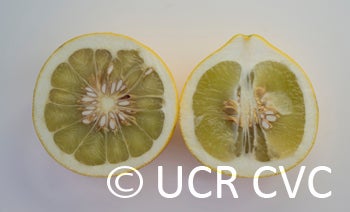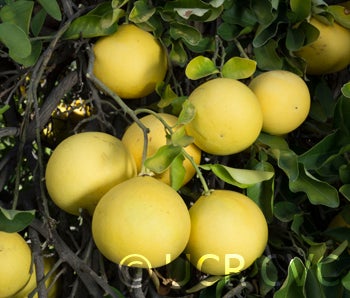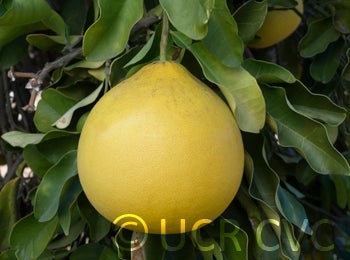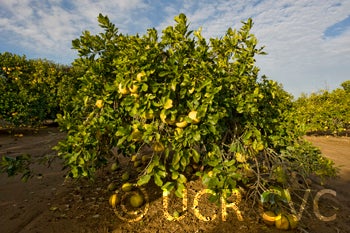Citrus maxima (Burm.) Merr.
CRC 3806
PI 539392
VI 342
Source
Received as budwood from Hawaii in 1971.
Parentage/origins
Parents unknown.
Rootstocks of accession
Carrizo citrange, C-35 citrange
Season of ripeness at Riverside
Unknown.
Notes and observations
EMN, 2/24/1988: Small trees. Rind not particularly thin as stated in TCI description but is still thinner than most pummelos. Fruit size varies from small to medium-large for a pummelo. Smooth yellow rind; globose fruits slightly flattened on the ends. Seedy. Flesh greenish amber, melting, juicy. Unusual flavor, enjoyed by many people, disliked by some. Probably in peak season now- slightly tart.
OJB: Sarawak pummelo is sometimes referred to as Tahitian pummelo.
The tree is large and vigorous. The fruit is round with a flattened bottom and has a greenish-yellow rind that is thinner than the typically thick pummelo rind. The flesh is greenish, juicy, and sweet with a flavor some refer to as melon-like or even lime-like. It is early to mid-season in maturity and holds well on the tree.
Description from The Citrus Industry Vol. 1 (1967)
"Mention should be made of the so-called Tahitian grapefruit because of its distinctive characteristics and high quality. This agreeably-flavored fruit is in reality a thin-rinded, highly juicy pummelo. The seeds are monoembryonic and otherwise typical of the pummelo and the shoot growth is much more pubescent than any of the grapefruits. The faintly amber flesh color suggests the possibility that it may be lightly pigmented under conditions more favorable for color development.
The origin of Tahitian is obscure but it is believed to have developed in Tahiti from seed from Borneo whence it was taken to Hawaii. The variety is of local and limited importance only, but is highly reputed for its excellent quality."
Availability
Commercially available in California through the Citrus Clonal Protection Program. Click here to order budwood.
USDA Germplasm Resources Information Network page for Tahitian pummelo



